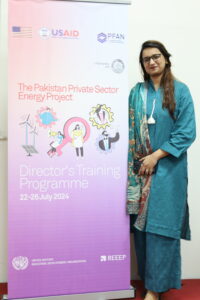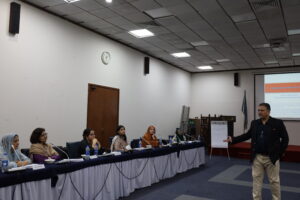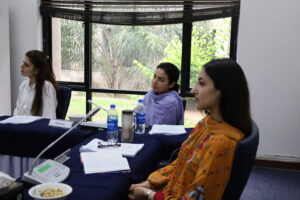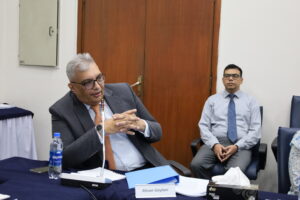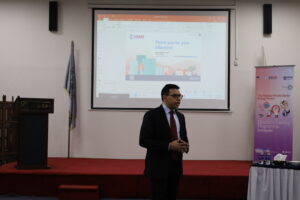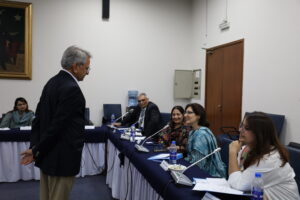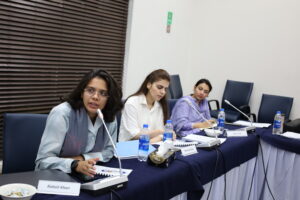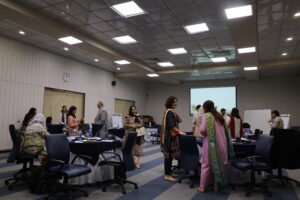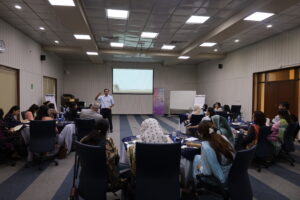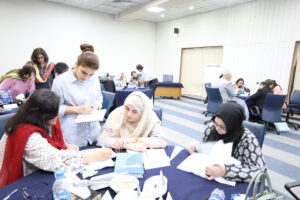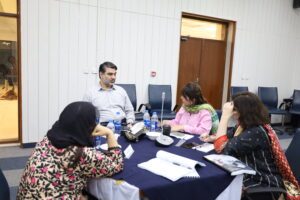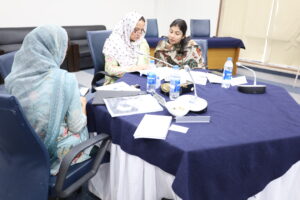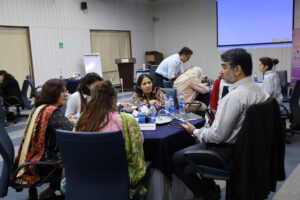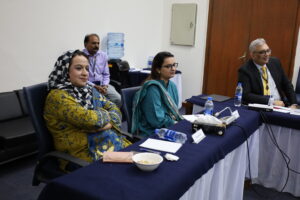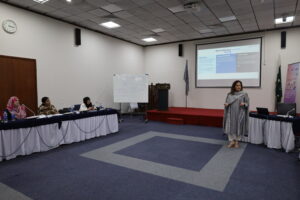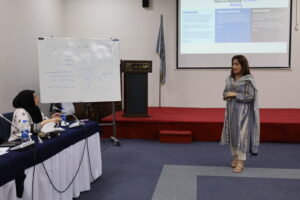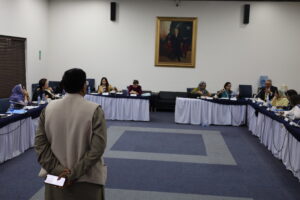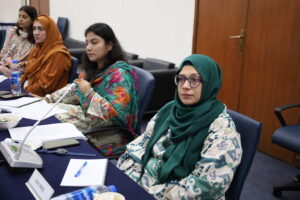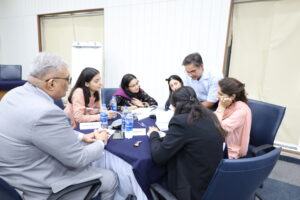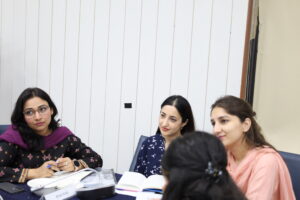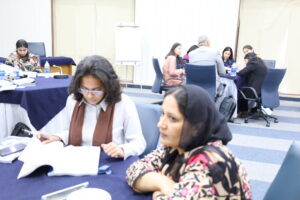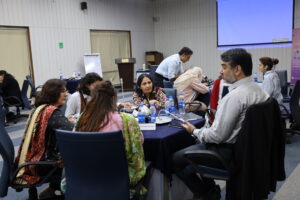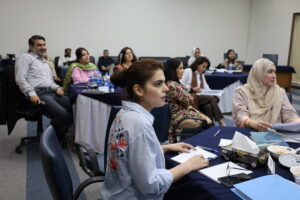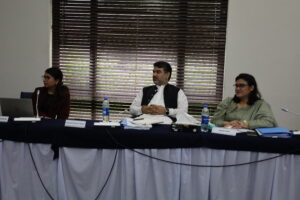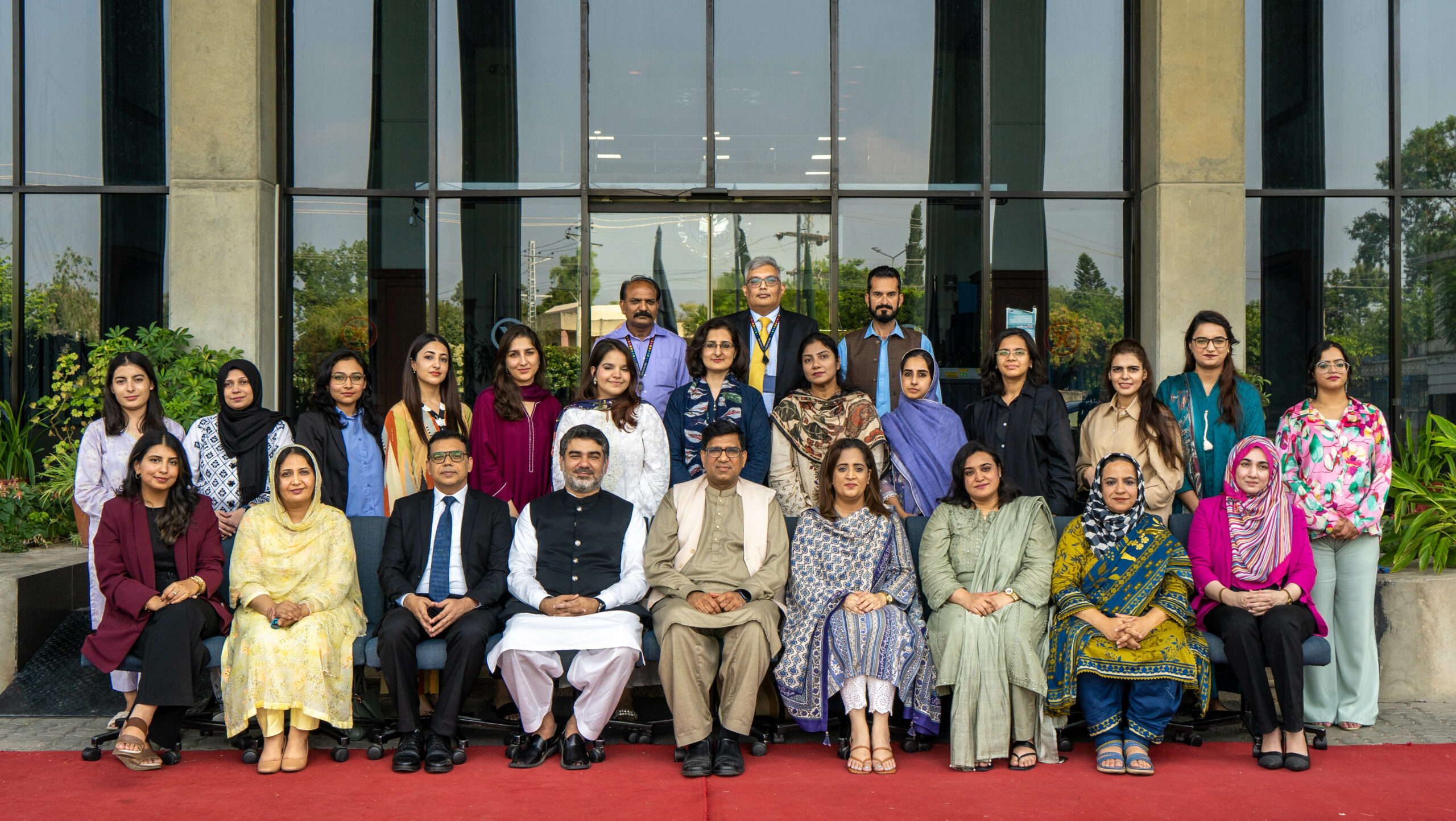
Women in PPSE’s Pipeline Officially Certified for Directorship with the Securities & Exchange Commission in Pakistan
The Pakistan Private Sector Energy Project held a five-day “Directors’ Training Program” (DTP) for select female professionals from PPSE’s pipeline of projects, advisors and partners, on July 26th, 2024 at the National Institute of Banking and Finance in Islamabad. The capacity building activity was initiated under the project’s gender mainstreaming efforts and its community of practice for clean energy financing. PPSE is committed to furthering women’s insights, tools and participation on clean energy solutions and financing instruments in Pakistan.
DTP is a Corporate Governance Leadership Skills training set up since 2007 by the Pakistan Institute of Corporate Governance (PICG) in collaboration with International Finance Corporation. The intensive training helps build the knowledge, skills and access to decision-making roles at the private and public level. Successful participants are registered on PICG’s and Securities and Exchange Commission of Pakistan’s (SECP) portal of eligible directors.
PPSE addresses access to climate finance and views women as one of the biggest strengths in any business, which is why the project is working with companies in pipeline to formulate their gender action plans, so there are more women in leadership, in teams, in the supply chain and as customers. PPSE is trying to push past national metrics and the current active portfolio stands at 7.9% female ownership, 21.3% of the executive management positions which is much higher than the national average. Almost 30% of PPSE’s advisory board comprises women from robust finance, energy and sustainability backgrounds.
The training commenced with a presentation on PPSE’s impact on its gender metrics, particularly towards streamlining gender lens investing within climate finance in the country.
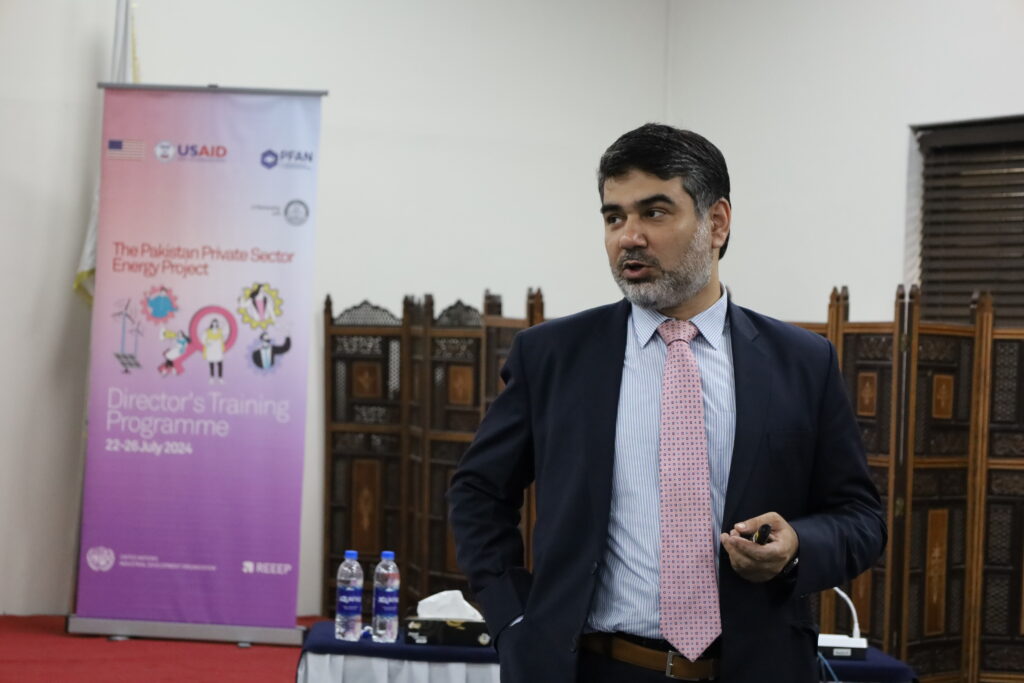
![]() PPSE identified DTP as an opportune tool for women’s upward career mobility and economic empowerment as well as inclusive and sustainable development in Pakistan. A recent study by the Women on Board Pakistan found that only 11% companies have women directors and the remaining directorship of 89% companies still rests with males. While this is a disheartening reality, it is also an opportunity as SECP has made it mandatory to have at least one female director for the listed companies.”
PPSE identified DTP as an opportune tool for women’s upward career mobility and economic empowerment as well as inclusive and sustainable development in Pakistan. A recent study by the Women on Board Pakistan found that only 11% companies have women directors and the remaining directorship of 89% companies still rests with males. While this is a disheartening reality, it is also an opportunity as SECP has made it mandatory to have at least one female director for the listed companies.”
PPSE Investment Expert and Community of Practice Lead, Ahsan Gaylani, delivered welcome remarks to the participants and shared the objective of the training.
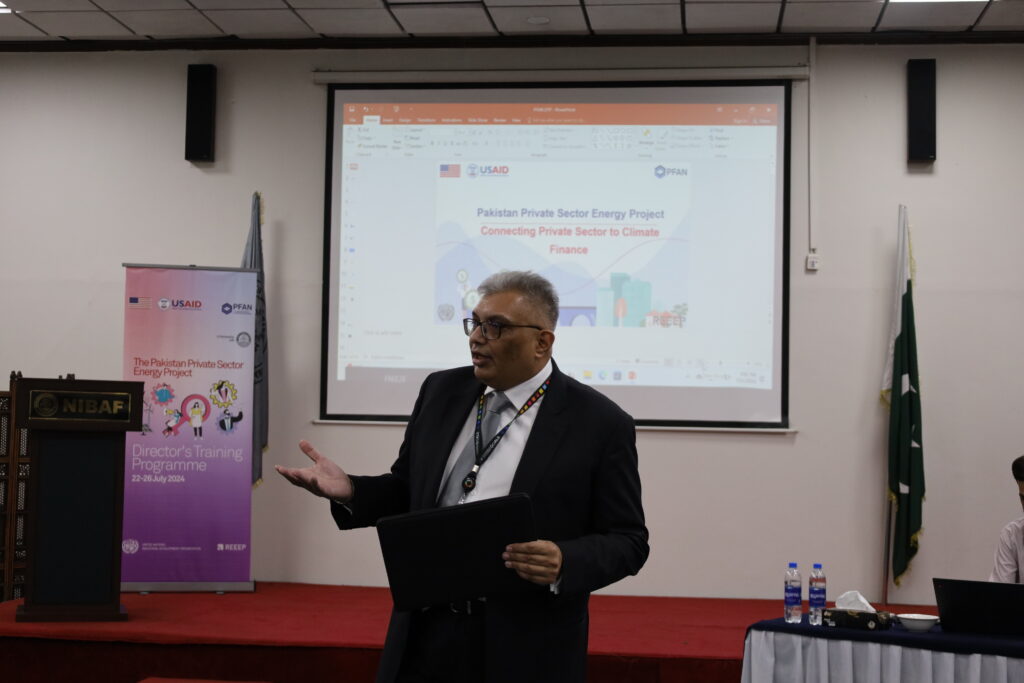

![]()
![]()
![]()
Day 1: Corporate Governance
The training kicked off with an in-depth session on ‘Corporate Governance and Board Responsibilities’ and was led by veteran trainer and finance professional, Saif-ul-Islam. Mr. Islam has served as CEO of Bank of Khyber and is an experienced executive with demonstrated history of working in the banking industry. The sessions encompassed ‘Fundamentals of Corporate Governance’ as well as ‘Board Structure and Composition’ and participants were showcased various local and international case studies and best practices.
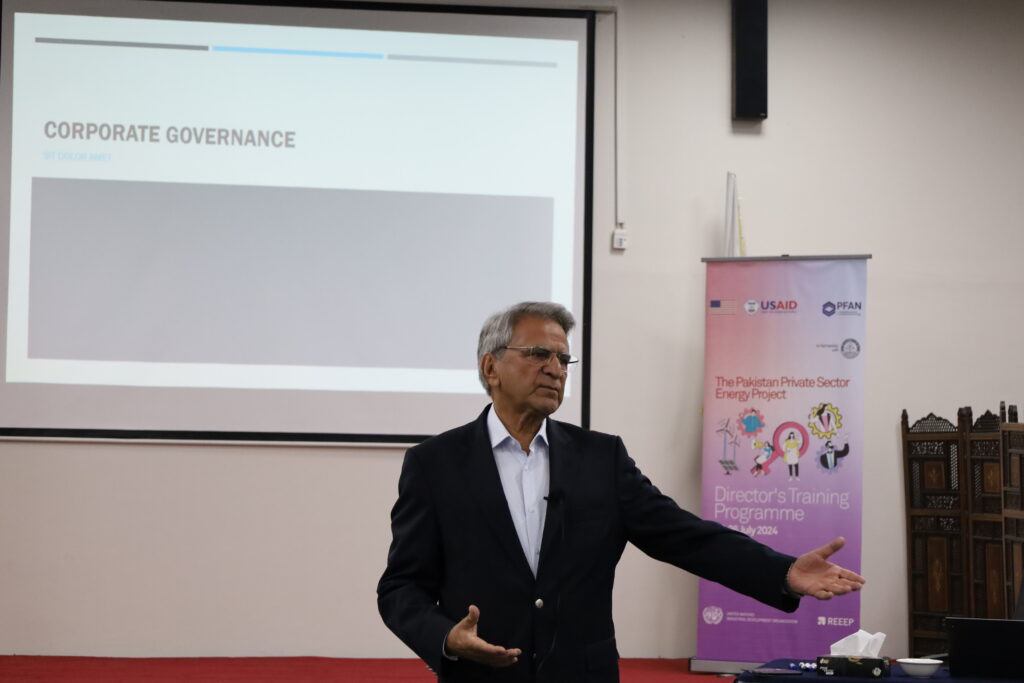

Day 2: Legal and Ethical Responsibilities
Day two featured ‘Legal and Ethical Responsibilities’ of board members and directors and was led by Hasnain Kazmi is an experienced lawyer working in the capacity of Assistant Advocate General Punjab, legal and regulatory framework for structuring the power projects. He gave a legal overview on relevant laws (CCG Regulations, Companies Act, 2017, Securities Act, 2015); key principles and elements of good corporate governance; fiduciary duties to shareholders; ethical obligations of directors and development of code of conduct and policies.
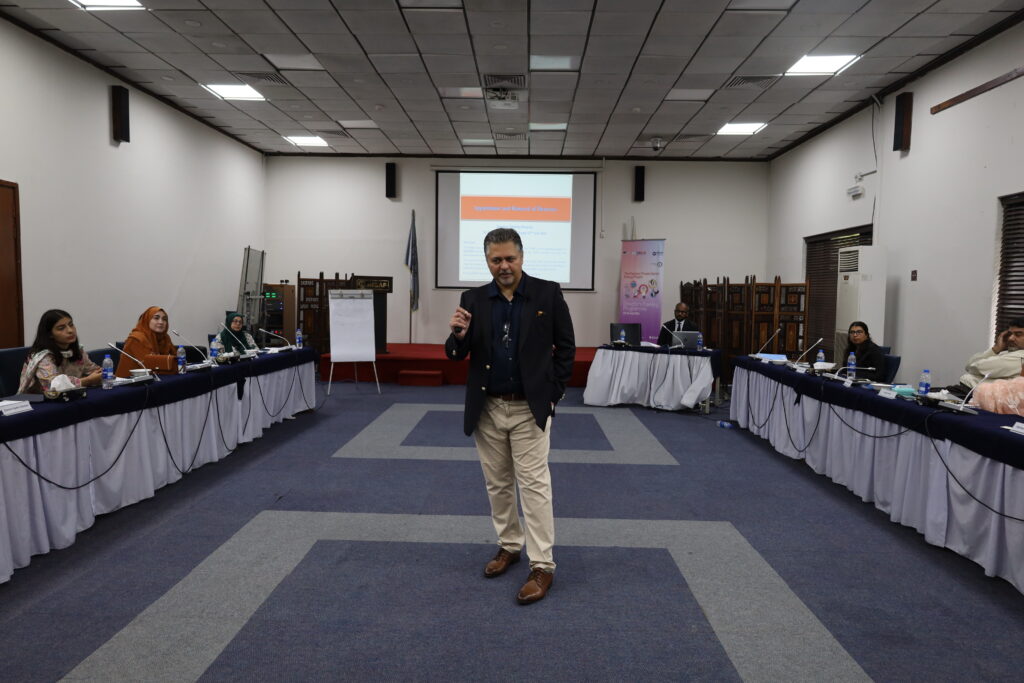

Day 3: Financial Oversight and Performance Management
Training expert Salman Shahzad delivered an energetic training on ‘Financial Oversight and Performance Management’ on Day 3. Shahzad has over last 25 years of experience in leadership, project management, data analysis, planning, creating strategies, HR and Finance to assist organizations achieve efficiency, effectiveness and to make better informed decisions.
In this session participants learned about the impact of corporate governance on profitability and shareholder value and ethical considerations in financial decision making. The trainer used multiple case studies to help trainees understand key financial statements and analysis. Budgeting and forecasting were also thoroughly explained and conducted in the group activity.
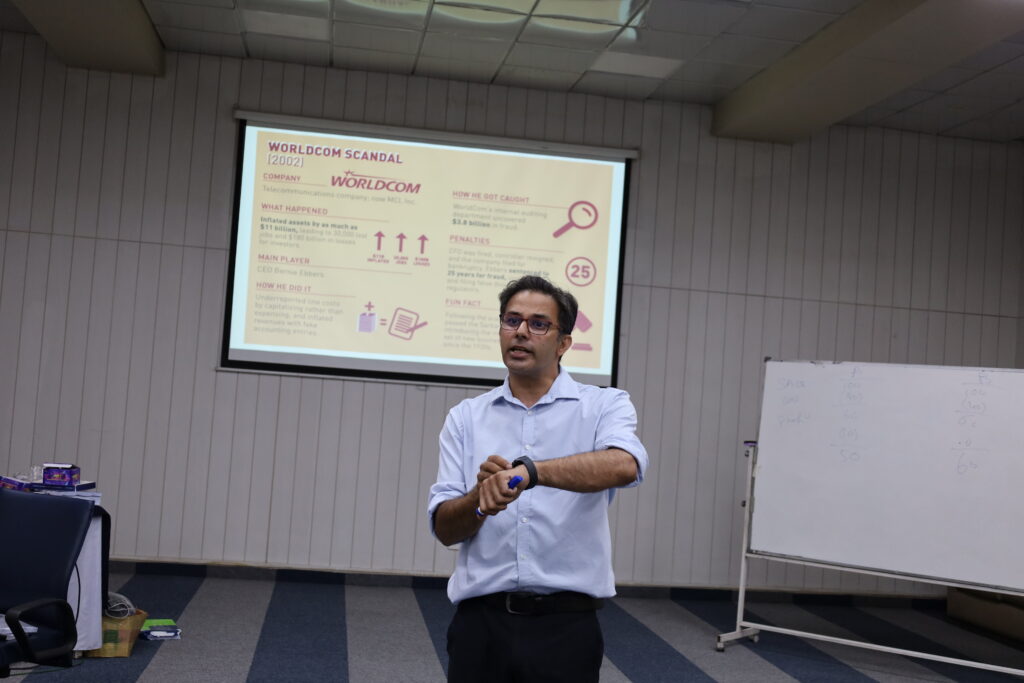

Day 4: Risk Management
NIBAF’s Managing Director, Riaz Chunara, delivered the introductory module on day 4 on ‘Risk Management’, as he is uniquely qualified with learned insights. Mr. Chunara has been associated with different committees entrusted with different tasks and has represented at various national and international fora relating to functions of SBP. He has served on the committees of ICMAP, ICAP and CIMA UK and is currently part of the Education and Training Committee, Public Sector Committee and Digital Accounting and Assurance Board of ICAP.
Mr, Chunara gave participants an overview of risk management and types of risk (strategic, operational, financial, compliance, reputational) and the importance for directors in mitigating and anticipating risks. The trainer posited that building and sustaining a risk-aware culture is key to company success.
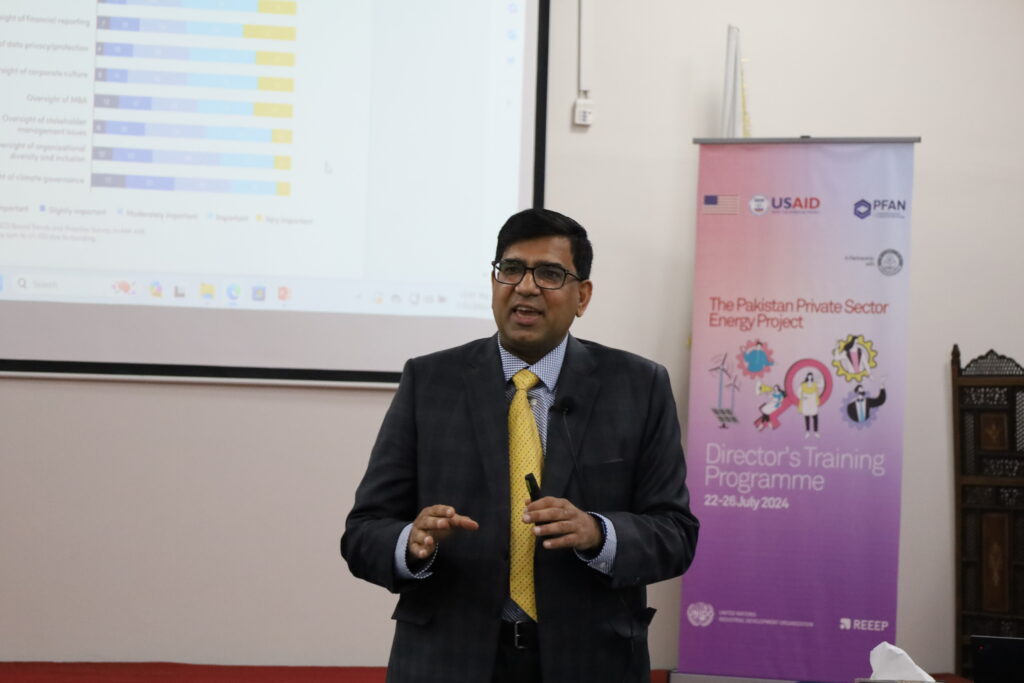

Dr. Wasim Ullah, Head Internal Audit & Inspection at National Bank of Pakistan, delivered modules on Risk Governance and Culture as well as financial and operational risks; compliance, regulatory and reputational risks and integrating risk management.
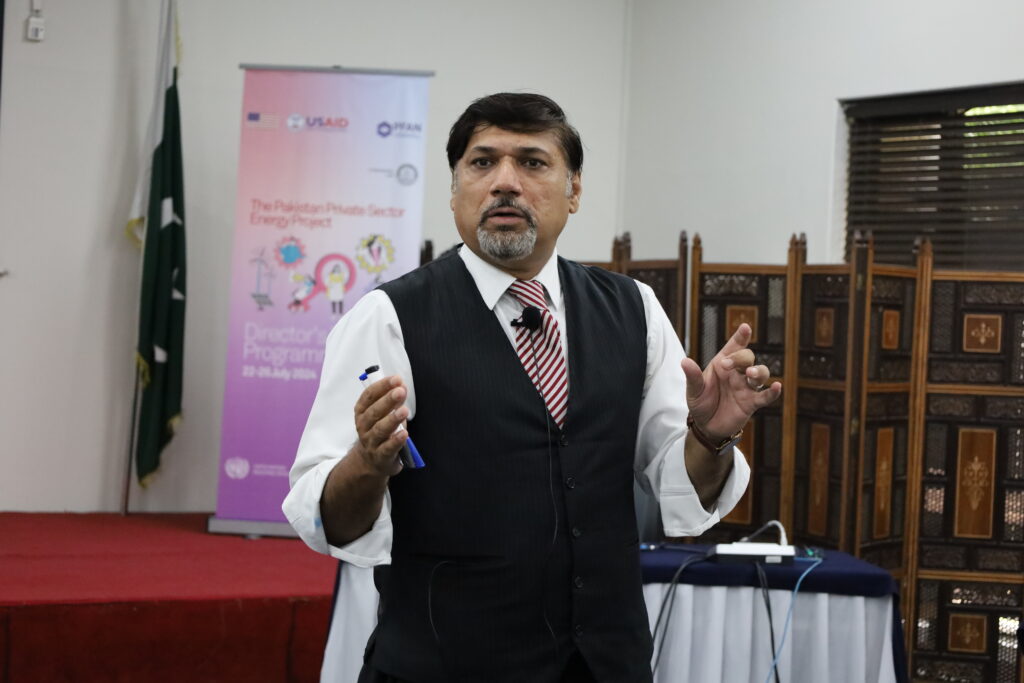

Day 5: Cybersecurity and ESG
The last day of the training started with an illuminating session on Cybersecurity, as in the 4th Industrial Revolution with the prevalence of AI and the internet economy, cyber-threats are a reality every company needs to be prepared for. This session was led by Syed Asim Iqbal who is a seasoned IT specialist working with the public and private sector companies globally.
He shared insights about the impact technological advances such as AI might have on companies security and longevity, and suggested participants to become early-adopters of technological advancements to ensure they can advise on boards effectively.


Sustainability, inclusion, diversity and transparency are the hallmarks of any bonafide company, so the course ended with the all-important module on ESG, which was led by Sabahat Bokhari, co-founder of The Inclusion Lab. She is providing recruitment services and DEI services, DEI Assessment, DEI Strategy formulation, and DEI Training for various local and international companies.
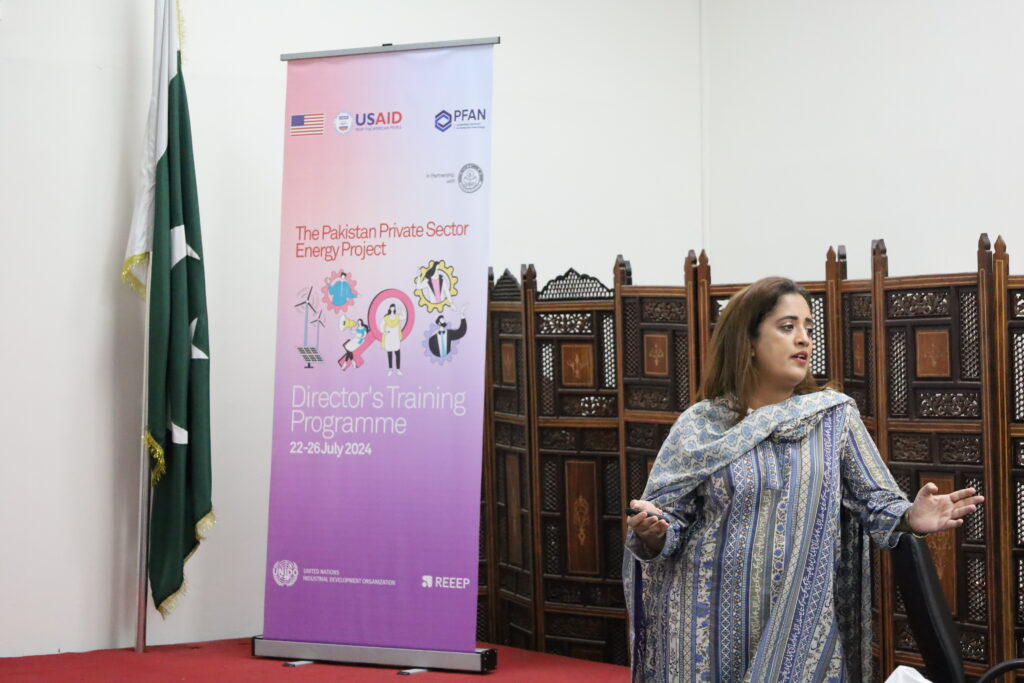

Participants lauded the eclectic and impressive expertise, training styles and insights the tapestry of trainers brought to the 5-day training.
Trainee Testimonials
Dr Kiran Siraj, Ph.D. Electrical Engineering and Postdoctoral Associate at the LUMS Energy Institute has started her foray in to entrepreneurship in clean energy and has been an invaluable intellectual resource and partner to the PPSE Project. She is part of the electric mobility company, Neubolt that hails from LUMS. Dr. Siraj commended the organizers of the training for their dedication to helping women break glass ceilings in the corporate and energy sector.
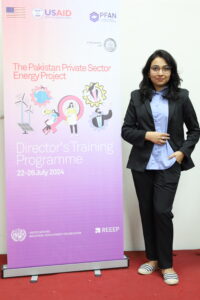

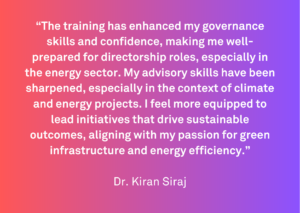

Rabail Khan, an electrical engineer and product manager at e-mobility company in PPSE’s pipeline, Zyp Technologies, beamed that the training was an opportunity to grow her network, knowledge and make life-long friends with women who are in a similar field as her and understand the challenges of working in the male-dominated energy and innovation sector.
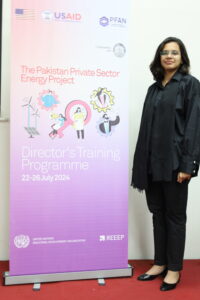



Farheen Ahmed is COO of PPSE’s solar pipeline company, ACT Engineering Services and is responsible for operations of 200+ solar EPC upcoming sites.
